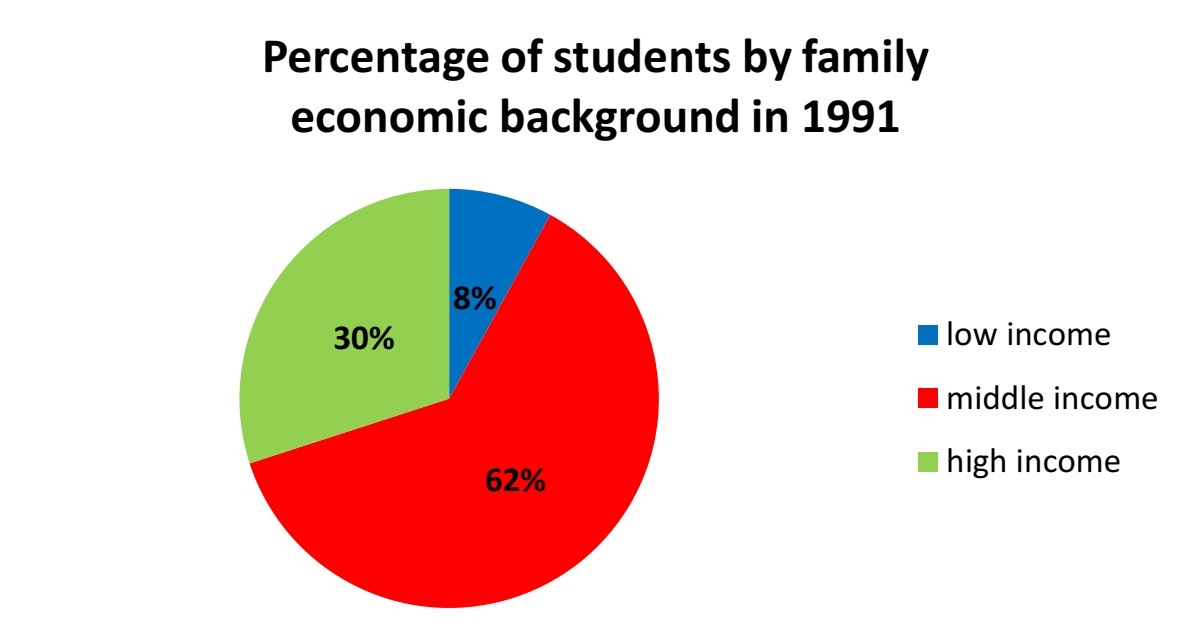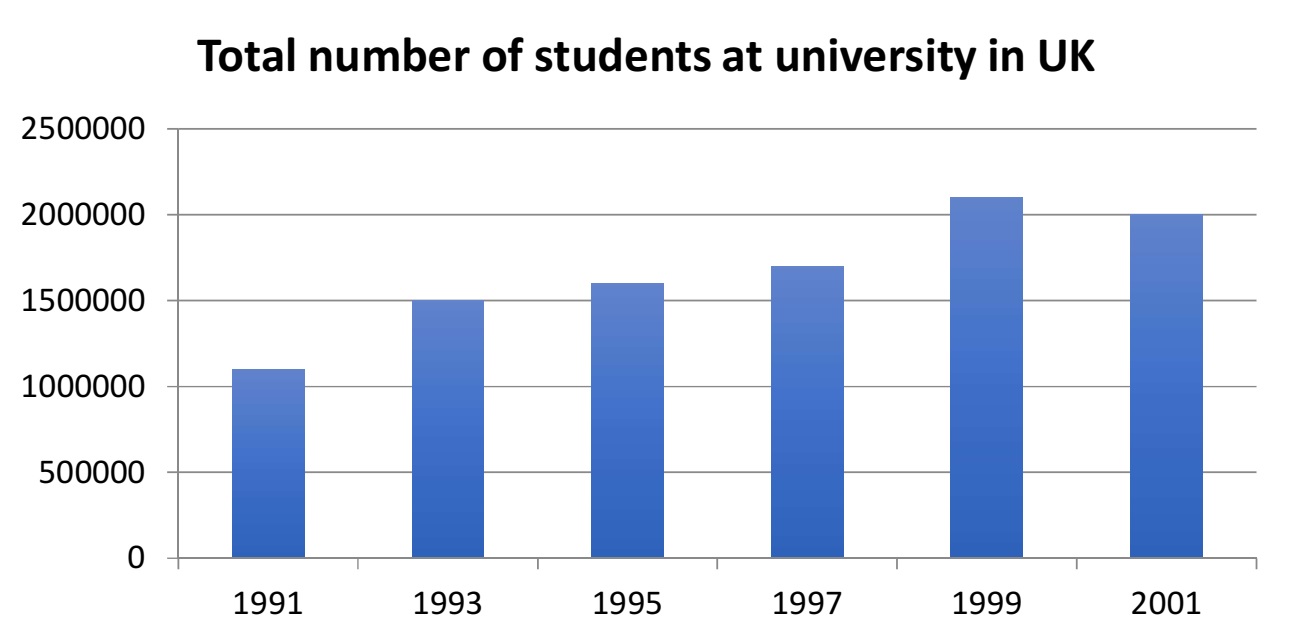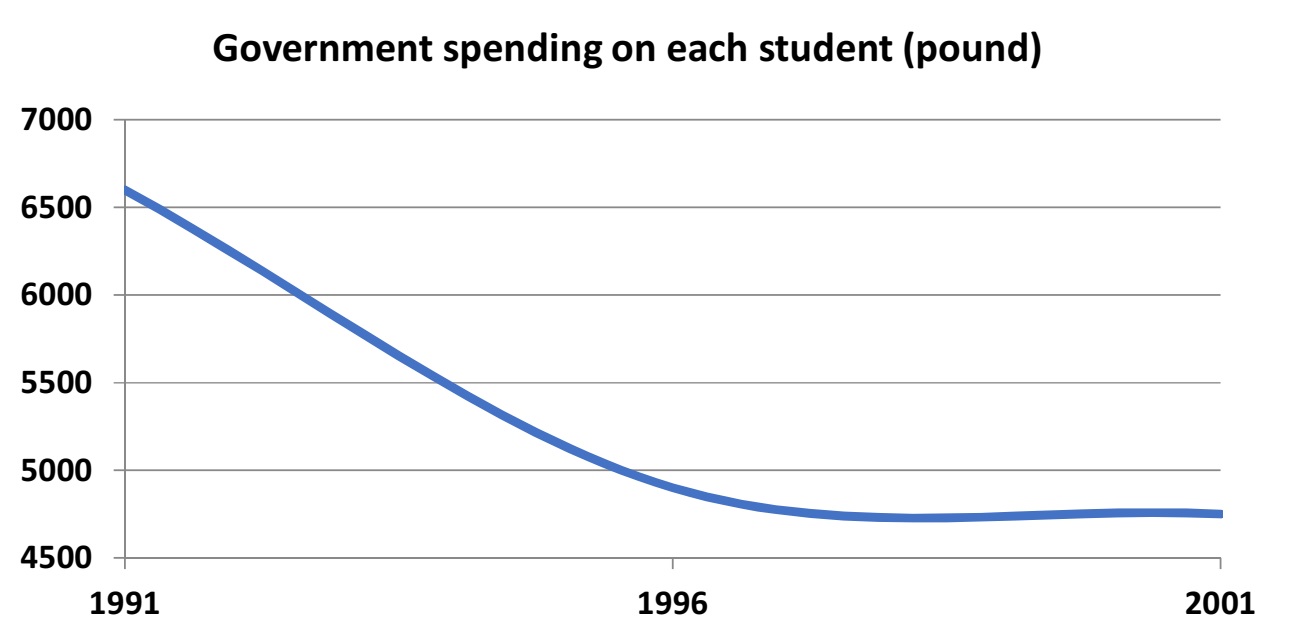In many countries, children are becoming overweight and unhealthy. Some people think that the government should have the responsibility. To what extent do you agree or disagree?
Give reasons for your answer and include any relevant examples from your own knowledge or experience.
Write at least 250 words.
WRITING TASK 1
The charts illustrate the number of undergraduates in the UK, government spending on each student from 1991 to 2001, and compare the percentages of students from different family economic backgrounds in 1991.
Overall, in 1991 the majority of undergraduates came from middle-income families. Also, in contrast to the increased number of university students, government spending became less and less toward the end of the period.
The proportion of university students whose family financial background fell into the middle-income category was just over 60%, approximately twice as much as that of students from high-income families. Meanwhile, only 8% of UK undergraduates were from families with low income in 1991.
There was a moderate rise in the number of undergraduates from over one million in 1991 to more than two million in 1999. This figure then slightly declined to precisely 2000000 two years later.
Despite the overall increase in student numbers, government budgets allocated to support those students fell substantially from 6500 pounds to around 4700 pounds, a decrease of 1200 pounds in only 5 years. After that, the figure experienced almost no change until the end of the period.
(188 words)
WRITING TASK 2
Childhood obesity has become a typical sign of deteriorating public health the world over, especially in Western countries, where massive amounts of unhealthy food is consumed on a daily basis. In this regard, some people believe governments should do whatever is needed to improve this situation. However, we should not single out governments as the only ones responsible for combating the childhood obesity crisis.
The role of a competent and responsible government is to ensure the well-being of its people. That is to say, if there is any serious threat to the people, as childhood obesity is, the government should be the one to acknowledge the threat, and implement effective solutions. However, apart from encouraging regular exercise and healthy eating habits, I do not feel that the government has any further role to play.
The duty to combat childhood obesity should not fall on governments alone, as parents are, for good reason, a greater source of influence on their children’s life. It can be seen that obese children are often malnourished because they do not receive appropriate nutrition from their food, a truth that reveals parents’ poor choice of diet for their kids. This fact also suggests that parents can have a direct impact on improving their children’s health by choosing healthy eating patterns that contain less sugar and fat. On the other hand, obesity is also caused by lack of physical activity. This can be exemplified by the sedentary lifestyle favored by a large number of youth nowadays. Parents are the only ones who can either encourage, or force, their children to do more physical tasks or exercise.
In conclusion, the government should of course do what they can to curb the obesity epidemic, no matter how small their impacts might be. However, I feel that the parents of obese children are to blame, and thus need to take responsibility for their kids’ unhealthy condition.
(316 words)



